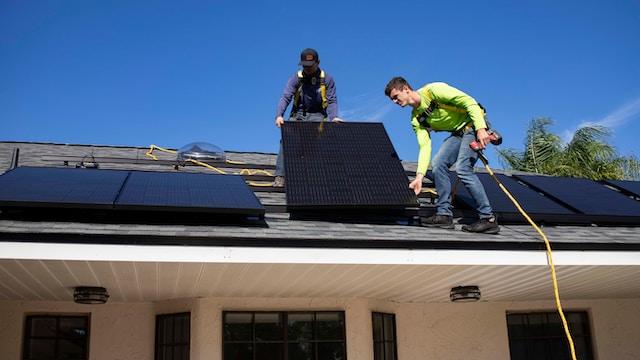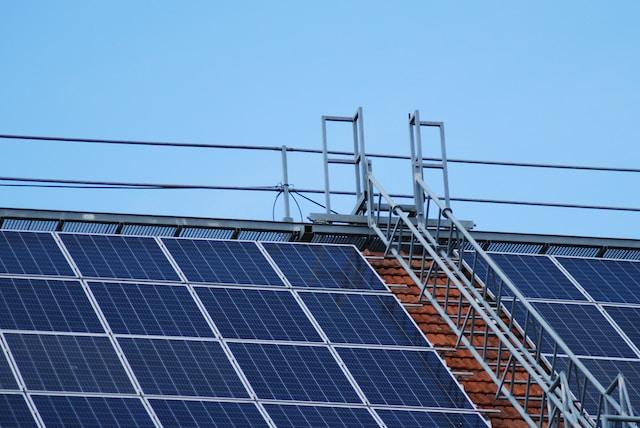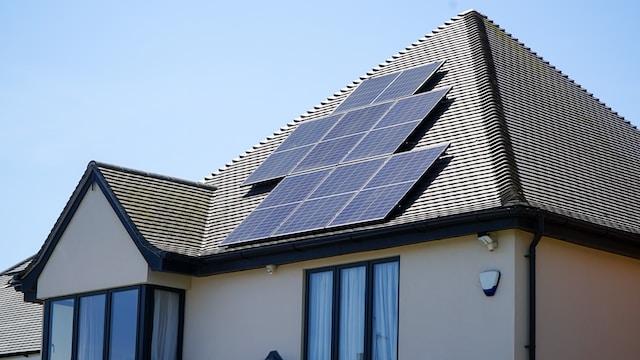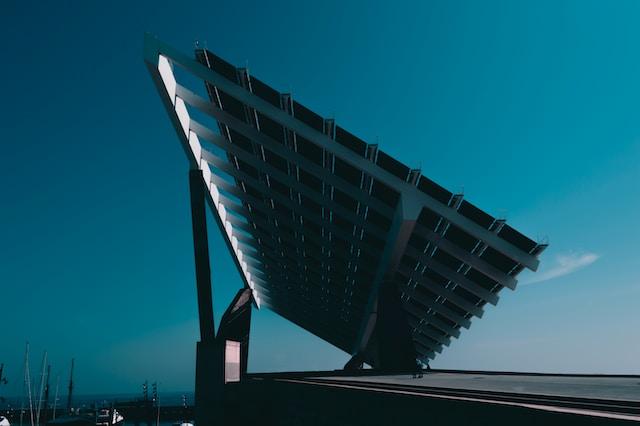
Top 10 Things to Consider When Buying Solar Panels for Your Home
Introduction
Solar panels are a smart investment for homeowners seeking to embrace sustainable living, reduce energy costs, and achieve energy independence. These eco-friendly power solutions transform sunlight into electricity, making it possible for homeowners to significantly lower their reliance on traditional energy sources. As the demand for clean, renewable energy continues to rise, solar technology has evolved to offer enhanced efficiency and performance. However, choosing the right solar panel system for your home can be a daunting task. That's why our comprehensive guide is here to help you make informed decisions when purchasing solar panels. In this article, we'll delve into the top 10 factors to consider when investing in a solar panel system, covering aspects such as energy needs, panel types, and financing options. By understanding these critical factors, you'll be well-equipped to select the ideal solar solution that aligns with your specific requirements and goals.
1. Determine Your Energy Needs
Determining your energy needs is a crucial first step when investing in solar panels. By analyzing your current and future energy consumption, you can ensure that your solar system meets your household's specific demands. To begin, examine your electricity bills to obtain usage data and calculate your average monthly energy consumption. Additionally, consider potential changes in your energy needs, such as the adoption of electric vehicles, the installation of energy-intensive appliances, or even planned home additions. By thoroughly assessing your energy requirements, you can confidently choose a solar panel system that is tailored to your unique needs and lifestyle.
2. Solar Panel Efficiency
Solar panel efficiency refers to the proportion of sunlight that a solar panel can convert into usable electricity. High efficiency panels are essential for maximizing the energy output from limited roof space, which ultimately translates into increased energy savings. While solar panel efficiency can vary across different brands and technologies, top-tier manufacturers typically offer panels with efficiencies ranging from 18% to 22%. Comparing the efficiency ratings of various solar panel brands can help you make an informed decision and select a system that optimizes energy production, ultimately leading to a more cost-effective and eco-friendly home energy solution.
3. Solar Panel Types
There are three main types of solar panels to consider when exploring solar solutions: monocrystalline, polycrystalline, and thin-film. Monocrystalline panels, composed of single-crystal silicon, boast the highest efficiency and sleek aesthetics but come at a higher cost. Polycrystalline panels, made from multiple silicon crystals, offer slightly lower efficiency at a more budget-friendly price. Thin-film panels, comprising various materials like amorphous silicon or cadmium telluride, are the least efficient but most affordable and versatile option, suitable for applications where space and weight constraints are a concern. Understanding the pros and cons of each solar panel type will help you make the best choice for your specific needs and budget.
4. Budget and Financing Options
Budgeting for solar panels involves considering both upfront and long-term costs, such as purchase, installation, and maintenance expenses. Various financing options exist to ease the initial investment, including solar loans, leases, and power purchase agreements (PPAs). Loans enable homeowners to own the system and pay it off over time, while leases and PPAs involve third-party ownership, with homeowners paying a fixed rate for the energy produced. Additionally, government incentives and tax credits, such as the federal solar Investment Tax Credit (ITC), can significantly reduce the overall cost of solar panel systems, making it a more attractive and affordable option for homeowners.
5. Warranty and Performance Guarantees
Warranties and performance guarantees play a crucial role in protecting your solar panel investment. A strong warranty ensures that the system maintains optimal performance throughout its lifespan and safeguards against potential defects or malfunctions. When comparing solar panel manufacturers, consider the duration and coverage of their warranties, which typically range from 10 to 25 years. A comprehensive warranty should cover both equipment and workmanship, including solar panels, inverters, and mounting components. By selecting a solar panel system with an extensive warranty from a reputable manufacturer, you can have peace of mind and confidence in your investment's long-term reliability and performance.
6. Local Climate and Solar Panel Performance
Local climate can significantly impact solar panel performance, as factors like temperature, sunlight hours, and precipitation affect energy production. In regions with abundant sunshine, solar panels generally yield higher energy outputs. However, even in cloudier climates, solar panels can still produce a substantial amount of electricity. To maximize efficiency in various climates, consider installing panels at an optimal angle and direction to capture the most sunlight. Additionally, ensure proper ventilation to maintain lower temperatures, as excessive heat can reduce panel efficiency. By accounting for climate-specific factors, you can optimize your solar panel system's performance and overall energy production.
7. Installation and Maintenance
Professional installation is essential for the safety, efficiency, and longevity of your solar panel system. Experienced installers possess the knowledge and skills to ensure proper placement, wiring, and mounting, maximizing your system's performance. Solar panels typically require minimal maintenance, but periodic tasks such as cleaning, inspections, and addressing any shading issues are necessary to maintain optimal energy output. Common maintenance concerns may include debris or dirt buildup and potential wear-and-tear of system components. By entrusting your solar panel installation to certified professionals and adhering to a routine maintenance schedule, you can ensure the continued efficiency and reliability of your renewable energy investment.
8. Roof Compatibility and Space Requirements
When planning a solar panel installation, suitable roof space and angle are critical factors to ensure optimal energy production. Solar panels require adequate, unshaded space and should be installed at an angle that maximizes sunlight exposure. For homeowners with unsuitable roofs due to structural limitations or shading issues, alternative options are available. Ground-mounted solar systems can be an effective solution, providing flexibility in location and angle. Additionally, community solar projects allow homeowners to share a collective solar power system, reaping the benefits of solar energy without the need for individual installations. Exploring these alternatives ensures that more households can embrace renewable energy.
9. Choosing a Reputable Installer
Choosing a reputable solar installer is essential for a successful and reliable solar panel system installation. Look for qualifications such as relevant experience, proper licensing, and insurance, as well as industry certifications like the North American Board of Certified Energy Practitioners (NABCEP) accreditation. To find reliable installers, research customer reviews on platforms like Google and Yelp, seek referrals from friends or neighbors with solar installations, and consult local solar industry associations for recommendations. By carefully selecting a trustworthy and competent installer, you can ensure your solar panel system is installed correctly, providing you with long-lasting, sustainable energy benefits.
10. Environmental Impact and Recycling
Solar panels offer significant environmental benefits, as they generate clean, renewable energy without producing harmful emissions or pollutants. By reducing reliance on traditional energy sources, solar panels help combat climate change, improve air quality, and conserve natural resources. However, it's important to consider the end-of-life cycle of solar panels and address the issue of disposal and recycling. Solar panel manufacturers are required to adhere to regulations that mandate proper disposal or recycling of panels at the end of their lifespan. Many manufacturers have established take-back programs and recycling initiatives to ensure panels are disposed of responsibly, minimizing the environmental impact of solar energy.
Conclusion
Investing in solar panels is a smart decision for homeowners seeking a more sustainable and cost-effective energy solution. To make an informed decision when purchasing solar panels, consider factors such as energy needs, panel efficiency, budget and financing options, warranty and performance guarantees, local climate, installation and maintenance, roof compatibility, and installer qualifications. By selecting a reputable installer and ensuring regular maintenance, you can maximize the benefits of your solar panel system. In addition to reducing energy costs and providing energy independence, solar panels help protect the environment by producing clean, renewable energy. Embrace a greener, more sustainable future by investing in solar panels today.
Apr 5, 2023
Share:
Fresh off the Press
Continue reading
Newsletter
Your journey towards a sustainable lifestyle starts here!
Join our newsletter for the latest on solar panels and clean energy breakthroughs.






